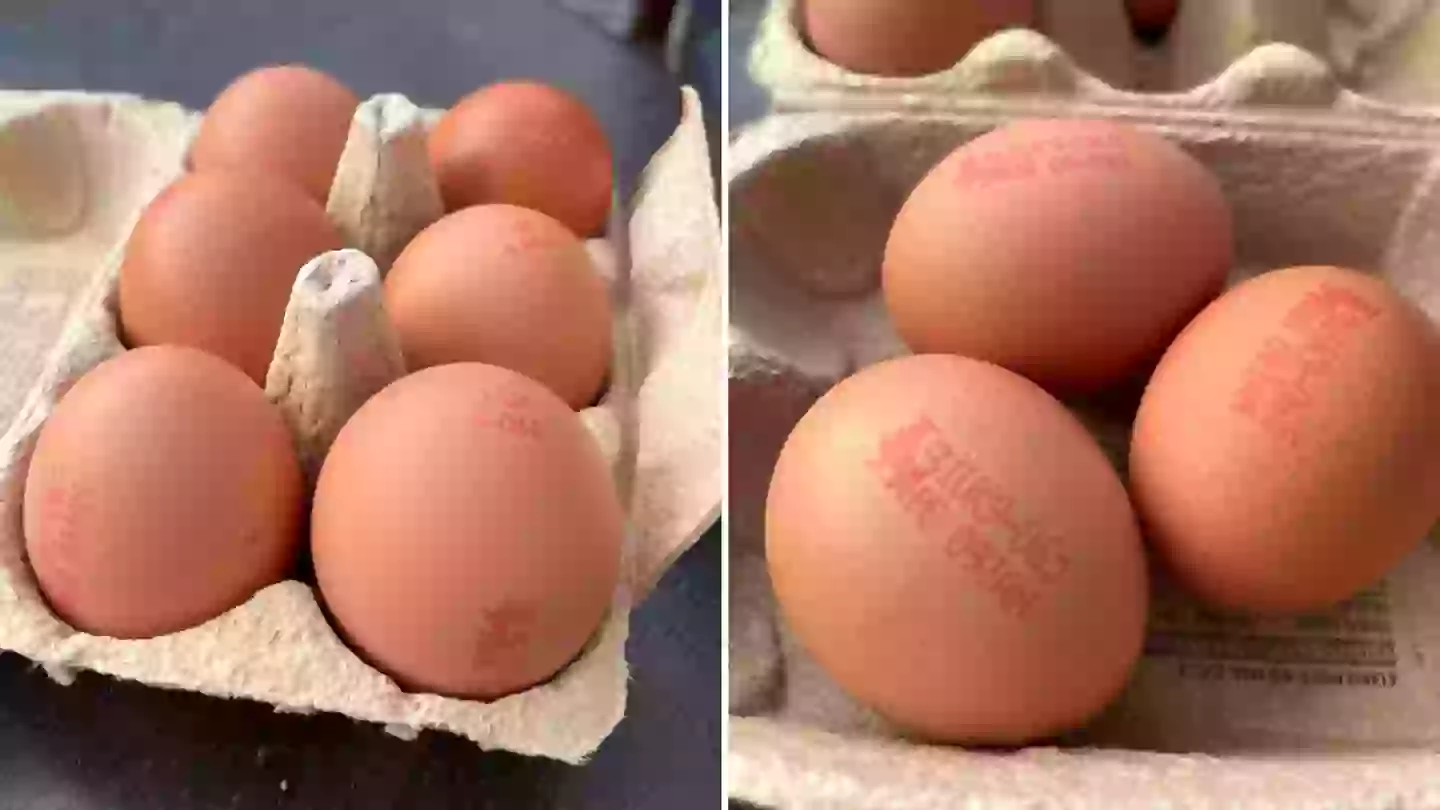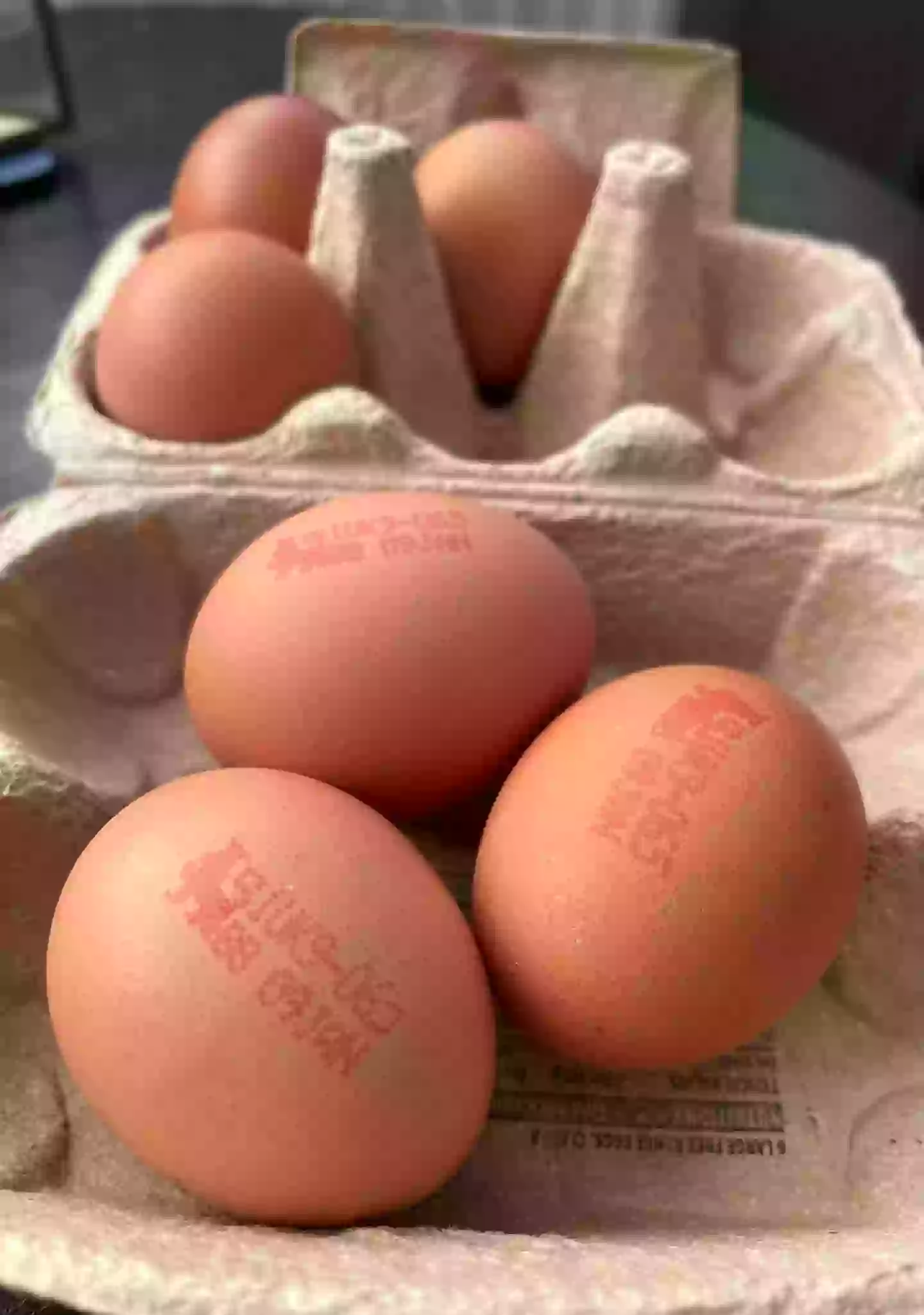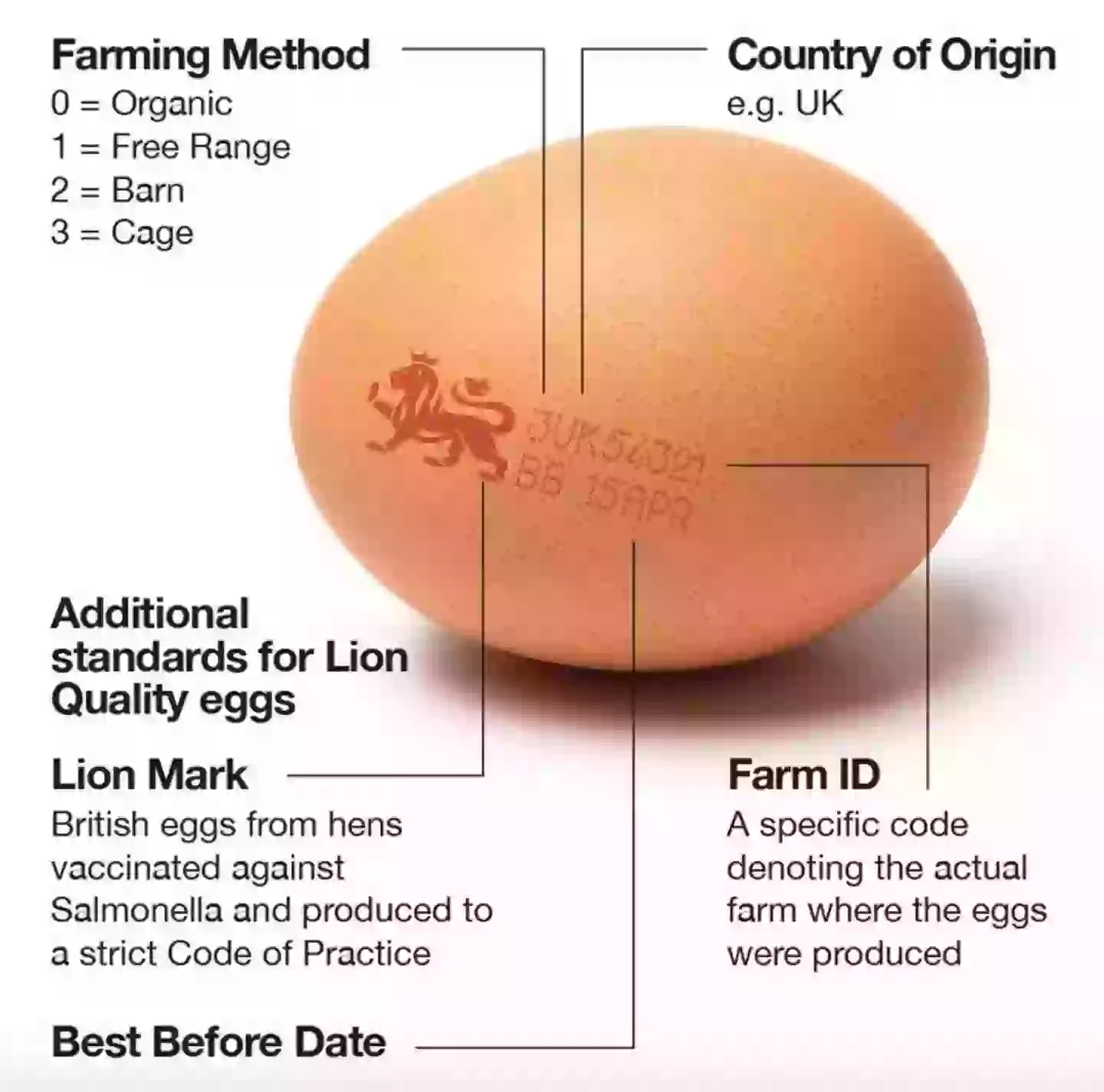
From scrambled with beans and toast to poached on an English muffin with Hollandaise sauce, the humble egg is a staple of British breakfast cuisine.
But, have you ever noticed a small red lion followed by a code on your eggs? This is exactly what it means.
The British Lion is a food safety initiative that launched in 1998 with more than 200 billion eggs being sold under the scheme since.
Advert

Over 90 percent of UK eggs are now produced under the British Lion scheme, which is responsible for a drastic reduction in salmonella - a nasty bacteria that causes diarrhoea, fever and stomach pains - present in them.
In 2016, the Government's Advisory Committee on the Microbiological Safety of Food said: "There has been a major reduction in the microbiological risk from salmonella in UK hen shell eggs... This is especially true for those eggs produced under the Lion Code."
That's because all eggs stamped with the British Lion mark have been produced under strict rules that ensure the highest level of safety.
Advert
The British Lion Code of Practice ensures strict food safety controls at every stage of the egg production process and includes increased hygiene controls, stringent feed controls, regular egg testing and the guarantee that all hens are vaccinated against salmonella.
How to read the code on your eggs
On top of this, a unique 'passport' system ensures that all hens, eggs and feed are fully traceable, with all Class A eggs - the highest grade of egg - stamped with the Lion logo and a code.
The first part of the code on the egg's shell is a number that indicates the farming method used to produce it. 0 = organic, 1 = free range, 2 = barn and 3 = cage.
Advert
Next is the egg's country of origin. As all eggs produced under the British Lion scheme must be British, this always says UK.
And lastly comes the farm ID, which denotes the actual farm where the eggs were produced.

But, while British Lion eggs are officially deemed 'safer', the absence of the Lion logo doesn't necessarily mean an egg is 'bad.'
Advert
For small independent producers, eggs only need to be stamped with a producer code if they are graded as Class A or sold at local markets by farmers who own more than 50 hens.
Eggs sold by local farm shops and markets by small scale farms don't require the same measures.
Topics: UK News, Food and Drink
